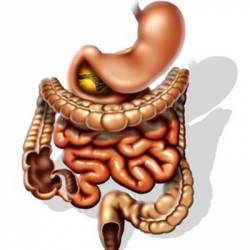[su_divider top=”no” style=”double” divider_color=”#952524″ link_color=”#952524″ size=”2″ margin=”10″]
What is Gastroenteritis? How to manage it? What are the precautions to be taken? What are the signs and symptoms? What is the cause of this disease? How to treat it? How can homeopathy help you? All of this answered, in this post and of course our doctors always there to help you. Just fill in your details in the form down below and we will answer all your questions for FREE!
[su_divider top=”no” style=”double” divider_color=”#952524″ link_color=”#952524″ size=”2″ margin=”10″]
[sc name=”query”]

What is Gastroenteritis?
Inflammation of gastric tract mucosa especially of stomach and intestines by toxin-producing bacteria’s or viruses is defined as gastroenteritis.
The disease is presented by symptoms like diarrhea, nausea, vomiting and abdominal pain. The severity of the disease varies from mild to severe depending upon the infectious agents entered the body and how healthy the patient is.
If the patient is of weak immunity then the severity of the disease is high. Children below the age of 5 are more prone to suffer from this infection as they have low immunity make up of the body.
What causes Gastroenteritis?
The invading bacteria when entering the gastric tract settle there and colonize and adhere to walls of gastric tract lead to mucosal wall invasion and destruction and produce enterotoxin production, ultimately these toxins lead to a destruction of a tract.
Due to this destruction process by bacteria secretions from intestinal tract increased and absorption of food decreases.
During this time of action of bacteria absorption of the fluids by intestine walls also decreased and leading to loss of electrolytes and nutrients and also causing dehydration.
Small intestines are the major part of a body which helps in fluid absorption but when this wall is going to be destroyed fluid is not absorbed and due to this stools are loose.
Gastroenteritis occurs in those patients who suffer from slow bowel movements i.e. are motility is less; it leads to colonization of pathogens.
The part of the bowel which is more commonly affected is proximal small intestines. This part is highly motile for removal of pathogens from the intestine but when the functioning of this part is lost due to any underlying disease.
The pH of the stomach and intestines is acidic in nature. This acidic pH is the primary defense of the body against the pathogens entering the gastric tract.
When this pH level of gastric tract changes from acidic to alkaline and this transformation of acidic to alkaline state is due to achlorhydric states ( i.e gastric surgery, antacids, the decrease in colonic anaerobic bacteria), then this defense is lost and pathogens invade mucosal tract directly and cause gastroenteritis.
Who is prone to get affected with Gastroenteritis?
Any age group can suffer from the infection of gastroenteritis. Both male and females are equally affected.
Infants and children below the age of 5 are more prone to suffer from gastroenteritis.
Gastroenteritis occurs in those areas more where there are poor sanitation and people living in unhealthy conditions. Developing countries show more cases of gastroenteritis.
Gastroenteritis is one of the leading diseases of diseases causing children mortality.
People in developing countries are more prone to have an infection of gastroenteritis. Asians, African people are more prone to suffer from gastroenteritis.
Mortality is more seen in Non-Hispanic whites and more in women.
What is the classification of Gastroenteritis?
Depending on the age and causes gastroenteritis is represented in many forms
• Pediatric gastroenteritis.
• Gastroenteritis due to viruses such as Rotavirus, shigella virus.
• Bacterial gastroenteritis by the different type of Campylobacter jejuni, Escherichia coli, salmonella.
• Parasitic gastroenteritis.
What are the causes of Gastroenteritis?
Gastroenteritis occurs due to many causes. Commonest of all the causes is by bacterial causes and viral causes.
Depending upon the pathogen invading causes are defined as below
Bacteria’s causing gastroenteritis is:
• Salmonella typhi.
• Campylobacter.
• Shigella causing dysentery.
• Escherichia coli.
Viruses responsible for causing gastroenteritis are as follows:
• Rotavirus.
• Calicivirus.
• Astroviruses.
• Adenoviruses.
Gastroenteritis due to parasitic invasions is very common.
Parasites involved are as follows
• Cryptosporidium.
• Giardia.
Other causes of gastroenteritis are as follows
• Poor sanitation conditions.
• People who don’t wash hands before eating.
• Uncovered eating products.
Contamination of drinking water due to chemicals or sanitation waste is also the major cause. Chemicals which lead to contamination of water are as follows
• Mercury
• Lead
• Arsenic
Medications are also leading to cause gastroenteritis
• Antibiotics
• NSAIDS
• Aspirin
• Steroids
• Laxatives
What are the signs and symptoms of Gastroenteritis?
• A frequency of stools is increased.
• The consistency of stools is watery.
• There may be mucus or blood in stools.
• Frequent attacks of vomiting depending upon the type of infecting pathogen.
• A large number of stools are present during attack and consistency is liquid or loose.
• Pain in the stomach before passing stools or after passing stools.
• Continuous pain is present in some cases where an invasion of a pathogen is severe.
• Dehydration is the major symptom; excessive dehydration can even lead to death if not treated at the right time especially if infection attacks infants.
What is the differential diagnosis of Gastroenteritis?
• Giardiasis.
• Obstruction large bowels and small bowels.
• Hemolytic uremic syndrome.
• Acute Appendicitis.
• Inflammatory disease of bowels.
• Salmonella infection.
• Shock hypovolemic.
• Pediatrics gastroenteritis.
What is the prognosis of Gastroenteritis?
Most of the cases of gastroenteritis, when treated at the right stage, are very well treated.
Some cases lead to death where dehydration is not controlled at the right time and with proper measures.
Death occurs only due to excessive loss of fluid and electrolytes.
What are the complications of Gastroenteritis?
• Sepsis
• Malabsorption due to less absorption of food.
• Dehydration is the major complication.
• Diarrhea is persistent.
• Toxicity of megacolon.
• Hemolytic uremic syndrome (caused due to E. coli.).
• A long history of diarrhea.
• Transient intolerance to lactose.
• Guillain-Barre syndrome.
• Systemic infection ( meningitis, arthritis, pneumonia)
What treatment is advised in cases of Gastroenteritis?
Medications help to prevent complications. Medication includes
• Antibiotics where along with infection fever symptom is present. medicines are as such ( Ciprofloxacin, Rifaximin)
• Antiemetics help in controlling vomiting and nausea. Antiemetic medicines are promethazine and many more.
• Antidiarrhoeal agents such as loperamide help to reduce the frequency of diarrhea.
Fluid therapy is helpful in those cases where the medication is not helpful in stoppage of diarrhea.
What is management and diet for gastroenteritis?
Stopping of diarrhea by adding fluids to compensate for the fall of fluid and electrolytes from bodying acute cases.
Where the cause is chronic for diarrhea as in parasitic invasions proper medication is helpful.
Change of habits such as:
• Washing of hands before eating.
• Washing of fruits and vegetables before cooking.
• Proper hygiene of sanitation area.
• Stoppage of open defecation system.
• Covering of utensils having eating products.
• Not to eat food from outside vendors if not covered.
What are commonly indicated Homeopathic medications for Gastroenteritis?
-Argentum nitricum
-Arsenicum album
-Baptisia tinctoria
-Bismuthum
-Cuprum metallicum
For more information, you can visit WebMD and eMedicine.
Gastroenteritis
[su_divider divider_color=”#952524″ link_color=”#952524″ size=”2″ margin=”10″]
[sc name=”know-your-doctor”]
[sc name=”more-links-diseases”]

